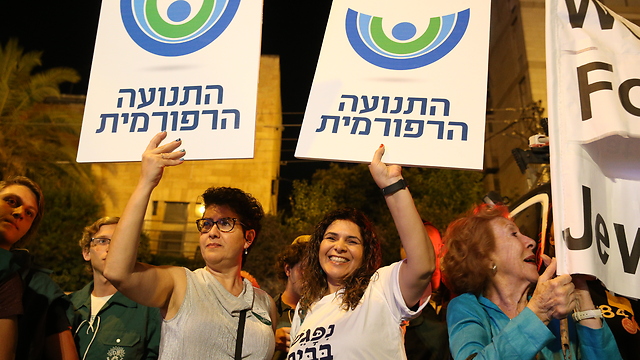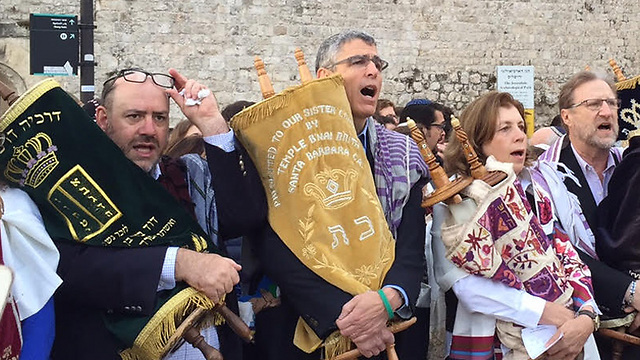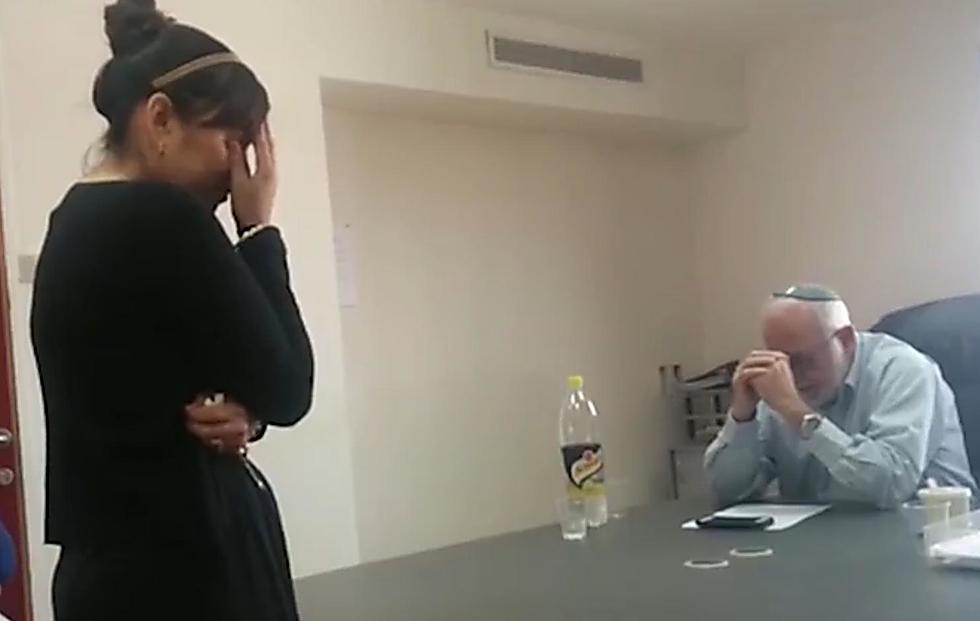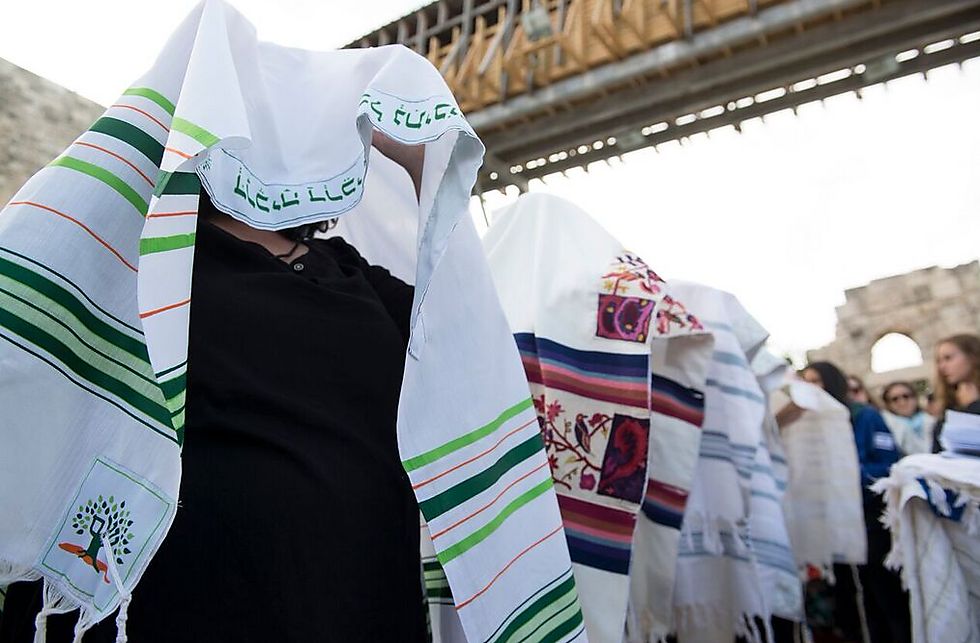
Conversion rows and broken Western Wall promises: How Israel is alienating US Jewry
Contentious decisions made by the last Netanyahu government to appease its ultra-Orthodox coalition partners regarding egalitarian prayer at one of Judaism's holiest sites and Rabbinate authority over who is a Jew cast a dark shadow over Israel's relationship with its biggest and most loyal friend
American Jews number a little less than Israeli Jews (roughly five million in the US and six million in Israel) and are the biggest and most prominent Jewish Diaspora; they give billions to the Jewish state, and work tirelessly to lobby for it in the US government.
Still, the two communities are vastly different, especially in regards to religious practice — with the majority of American Jews practicing Reform, Conservative or non-denomination Judaism and only about 10 percent practicing Orthodox Judaism — Israel’s official version of Jewish practice overseen by the ultra-Orthodox rabbinate.
Differences between the two communities became more and more evident in recent years, leading to a growing rift between the two — accentuated by political moves Israel has taken during the previous and the outgoing parliaments (known in Israel and the 19th and 20th Knessets).
It was the 19th Knesset that determined that any Orthodox rabbi in Israel will be allowed to perform conversions. This decision came to serve hundreds of thousands Israelis who struggle with being considered non-Jewish under Jewish law (Halacha), despite being eligible to immigrate to Israel under the Law of Return.
This large group of people, the majority of whom arrived in Israel after the fall of the Soviet Union, are not able to marry in Israel because of their status. So far, they have had undergo a slow grueling conversion process, due to the monopoly the Rabbinate has over the procedure. The new law was supposed to create competition in the conversions marketplace and speed up the process of becoming a Jew, but it only lasted only a while, as ultra-Orthodox lawmakers had it cancelled a few months after the 2015 elections for the 20th Knesset.
This cancellation did not stand up in court, and a March 2016 Supreme Court ruling determined that privately performed Orthodox conversions must be honored by the state. But Shas and United Torah Judaism, two Haredi parties that were part of the coalition, were not ready to back off, and demanded that the government push for a bill that bypassed the Supreme Court ruling.
The Haredi parties wished to seal up the crack that the law made in the Rabbinate’s authority, and claimed that the court ruling violated the deal they had made with the government to keep the status quo between state and religion. Therefore, they argued, the government had to restore the conversions system back to its former status of being under Rabbinate control.

Meanwhile, a petition to the Supreme Court that demands the recognition of Conservative and Reform conversions remains unaddressed. It has now been stagnant for more than 13 years.
In June 2017, the Ministerial Committee for Legislation approved a bill stating that only the Rabbinate has the authority to practice conversions and declare someone as Jewish — as the Haredi parties desired. However, the decision was soon shelved by Prime Minister Benjamin Netanyahu, who worried about the American Jewish community being outraged.
Fearing the crisis could destabilize his coalition, Netanyahu ordered that a new committee be established to examine the affair and tries to find a compromise. Former Likud minister Moshe Nissim headed the committee, which handed its conclusions to the government last May.
Nissim’s committee offered that formal conversions remain Orthodox, but operate outside the Rabbinate. They suggested a state authority, to include Reform and Conservative representatives, that would choose Rabbinical judges to perform conversions. The conclusions were vehemently rejected by Haredi parties and chief rabbis, and were set aside.
The second issue that loomed over Netanyahu’s coalition, deeming it unstable, was the debacle over the Western Wall egalitarian prayer area.
For over 30 years, the Women of the Wall, a multi-denominational feminist organization, struggled to hold egalitarian prayers in the Western Wall Plaza. In 2016, a historical compromise was finally reached between denominations: a new, pluralist plaza would be established at the Western Wall, in which all would be free to pray according to their costume — including joint prayer of men and women.
When the offer made its way to the government’s table, Shas and United Torah Judaism voted against it, but it was nonetheless approved. The Orthodox parties initially decided they would turn a blind eye when the decision was implemented despite their position, but when pressured by their public caved and demanded the decision be cancelled.
For a year and half, the issue remained stagnant. The new prayer plaza wasn’t built and all appeals to the High Court of Justice regarding the implementation of the compromise remain unaddressed until this day. And then in June 2017, Netanyahu surrendered to Haredi pressure and officially shelved the historic compromise.
The decision, which coincided with the legislation committee’s rule about the conversion law, was widely criticized by Jewish American organizations. There were even threats from these organizations to stop their support for Israel.
Netanyahu had to make statements belittling his own decision, calling it a mere formality, and promised the new plaza would be renovated and enlarged — but due to bureaucratic, legislative and political power struggles, the decision was never implemented either.
New research shows that American Jewish funding to Israeli state institutions is slowly drying up, as US Jews begin to transfer their attention to social, pluralistic and liberal NGOs in Israel and within their own communities. Whether this changes when (or if) the attitudes of the Israeli government change remains to be seen.













